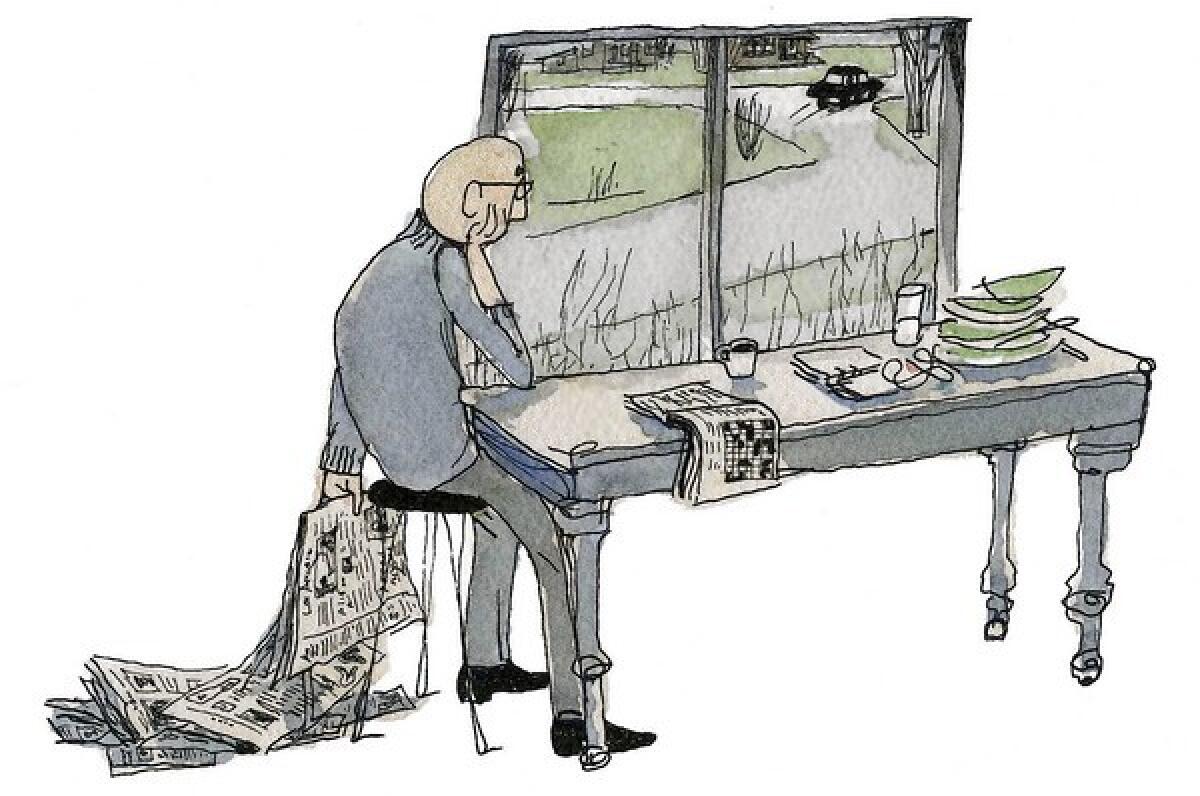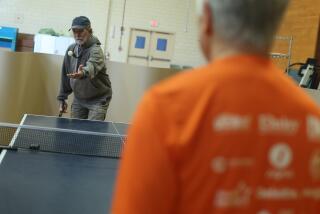Dealing with depression in seniors

After my mom died, I temporarily moved back in with my 81-year-old dad. My parents had been married more than 50 years; the last five had been difficult. Mom had a host of serious problems, including dementia. Taking care of her had left my father with his own health problems. I wanted to see how heâd do on his own.
Every day when I left for work, dad walked me out to the car and said, âAnything you want done today?â
I rarely had any tasks for him. As I drove away, I could see him in my rearview mirror bleakly watching my car disappear. Iâm sure the day ahead of him seemed long and empty.
In retrospect, I realize he probably was suffering from depression. But even if Iâd recognized the symptoms at the time, I may have reacted the way many adult children do: I would have thought, âOf course, heâs depressed. He has a lot to be depressed about; his health is failing and mom just died.â
Increasingly, health professionals are recognizing that depression among older adults is a serious problem that needs to be treated. Theyâre also recognizing that adult children are often oblivious.
âYounger people, including younger medical personnel, often donât notice it,â says psychologist Bob G. Knight, associate dean at the Andrus Gerontology Center at USC. âWhen they do, it doesnât surprise them. They think: âThey ought to be depressed, theyâre old.â So instead of helping the person deal with it, they ignore it.â
But depression isnât normal at any age, experts say. Most older people are satisfied with their lives, even when confronted with health problems or the loss of friends or a spouse. They grieve, but they bounce back.
Those who donât â the ones who continue to feel sad for weeks or months â often suffer from depression. They account for as many as one-fifth of the population of older adults in the United States. Untreated, the disease can lead to alcoholism, prescription drug abuse and illness. Itâs partially blamed for the fact that seniors have the highest suicide rate of any age group in the U.S., experts say.
Experts say the following are signs that a person might be depressed. Some of these symptoms also could indicate serious illness and should be checked by a doctor. A general practitioner is a good place to start.
â˘Feelings of emptiness, worthlessness or feeling unloved.
â˘Lack of interest in doing things the person once enjoyed.
â˘Feeling nervous, restless, irritable.
â˘Feeling like life doesnât seem worth living.
â˘Eating or sleeping more or less than usual.
â˘Feeling tired and sluggish.
â˘Complaining of headaches or stomachaches.
Despite the prevalence of the problem, few people get the help they need.
âDepression is under-diagnosed and under-treated,â says Dr. Laura Mosqueda, head of UC Irvineâs geriatrics program. Doctors tend to focus on physical complaints, and patients donât help; theyâre often reluctant to talk about their feelings or to ask for help.
When dealing with her older patients, Mosqueda tries to avoid using the term depression â or any others that might indicate a mental problem. People in their 70s, 80s and 90s are intimidated by those words, she says.
âIâll say to them, âThis low mood is something we can help you with.â And I often talk to them about coping and tell them they might feel a whole lot better if they get help.â
Adult children can use the same tack when trying to help their parents.
âHave a dialogue with them,â says Joseph A. Weber, coordinator of the Gerontology Academic Program at Cal State Fullerton. âAsk how theyâre feeling, how their mood is, whatâs going on with their lives.â
And pay attention to other indications in the home that something might be wrong. Check the refrigerator and pantry to see whether theyâre stocked. Is the house dirty when it once was clean? Are they neglecting the lawn or other chores that they once liked to do? Are they neglecting their own hygiene?
Weber says another clue is their isolation. âIf you find theyâve become reluctant to go out, thatâs a problem. They may say something like, âAll I feel like doing today is reading the paper.ââ
Antidepressant medications can ease the symptoms of depression, but some studies show that therapy works just as well, and without the safety concerns medication can pose.
Weber suggests children work with parents to find solutions. Set up regular visits, shopping trips, opportunities to see grandchildren, visits to the library or cinema.
âEveryone needs something to look forward to,â Weber says.
At the same time, donât exacerbate the problem by becoming too pushy.
âA lot of older adults struggle with accepting help; they donât want to be a burden to their children,â says UC Irvine neuropsychologist Mina Oak. âRemember that your parent is not a child and doesnât want to be treated like one.â Children need to avoid sending a message that, âYou canât take care of yourself anymore, so Iâm going to take care of things for you,â Oak says.
The best way to find a solution is to do it together. At the same time, try to find new ways to nurture the relationship, she says. And remember to appreciate and value parental advice.
âNo one wants to feel like a burden,â says Oak. âThey want to feel like theyâre contributing and are involved.â
My dad eventually worked his way through his bout of depression. He started attending art classes and joined a senior club, where he went dancing a couple of times a week. But it took almost a year for him to start enjoying life again. Iâm sure it would have helped if Iâd recognized the problem and encouraged him to talk to his doctor about it.
With treatment and support from those who love them, people can feel better, doctors say. No one has to live with depression.
Comments: [email protected]
McClureâs column on caring for and staying connected with aging parents appears monthly.






